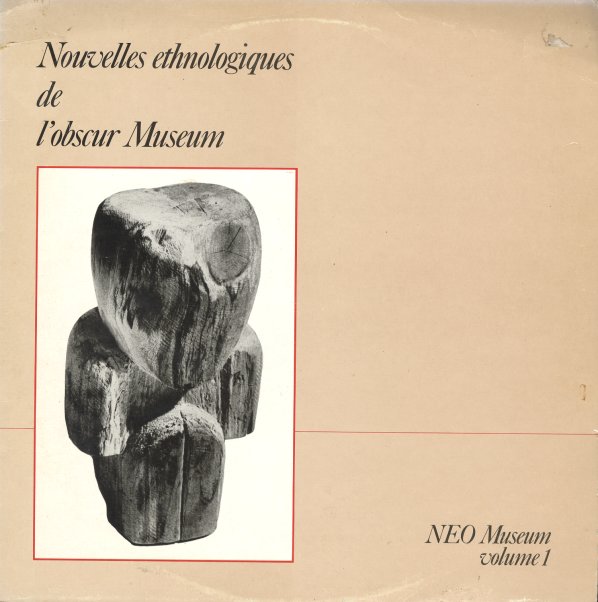 A
A typical Schneeball fusion band at the start, Munju originated in Würzburg, Germany circa 1976 as the new group of ex-Missus Beastly and Erna Schmidt winds-player Jürgen Benz.
A notable Kraan feel lived in their early recordings, with the bass being the kingpin of it all, with a multi-percussion axis and solo work from the guitar and winds. Increasingly, via their association with Embryo and RIO bands, they continually progressed and diversified.
Who is Munju?
One could say that Munju was one of the most outstanding German Bands ever!
Munju can be described as a post "CAN' and "KRAFTWERK" generation band and played originals only.
The core of the band - Dieter Kaudel/ guitars, oud and vibraphone, Wolfgang Salomon/ bass and keyboards und Thomas Römer/ drums and trumpet - played and toured together for 10 years and led Munju through their journey of different musical inspirations and styles.
The journey began as an instrumental fusion rock band in 1976 and slowly crossed over towards highly advanced rock with some German vocals. In their later years a touch of avantgarde was added into their repertoire (i.e. on their last album "Le Perfectionniste") .

Let's start from the very beginning:
The first Munju team consisted of Jürgen Benz on saxophone/flute, Wolfgang on bass, Dieter on guitars and Thomas on drums.
Jürgen had just quit his job with Missus Beasty and returned to his hometown Würzburg. He was looking to form a new band. Wolfgang and Thomas used to play together in the local rock band "Pozzokko" with guitarist Bernhard Potschka (later Nina Hagen Band and Spliff). Dieter played with "Neffe Bruno", an experimental band with Thomas' younger brother, percussionist Rainer Römer, who later persued a career in classical music and co-founded the renowned "Ensemble Modern"
The newly formed Munju created an energy and sound the audience instantly loved.

They became part of the independent musicians owned record label & distribution "Schneeball" together with Embryo, Missus Beastly, Ton Steine Scherben and many more.
Munju was first and foremost a touring live band. They played way over 1000 gigs in the 10 + years of their existence. Most of the gigs took place all over Germany and the highlights were tours through Italy, Sicily, Sweden, Austria, France, Spain and Switzerland.
Munju recorded two albums with their original line-up, but shortly after the second album, "Moon You," (1978) Jürgen left the band.
Alto Pappert (Kraan) on saxophone joint the group as a guest for one concert tour. After that, Munju developed their special sound and skills as a trio.

In 1979, Saxophonist Fred Lamberson from San Francisco became the fourth man. The next project was Munju's 3rd and most successful album, "Brot + Spiele". With this line-up, Munju toured Italy and Sicily, gave lots of radio and television interviews and also teamed up with "ZAMLA," an independent band from Upsala, Sweden for two big concert tours all the way through Germany and Sweden. Radio Malmoe broadcasted a Munju live concert.
In 1982 Fred left the band and returned to San Francisco.
Again, Munju performed as a trio until they met Peter Haas, a keyboarder from Berlin. Peter joined the band for about 9 months.
Within this time (1982-1984), Munju recorderd several videos in studioproduction and live.
After Peter left, Eddie Rüdel, a young guitarist from Würzburg, became the 4th member. With this line-up, Munju recorded their 4th album, "Le Perfectionniste" in 1984.
In January 1986, Dieter left the band to focus on his new business K&K Sound.
Later that year, Munju wrote and performed the music for the Faust ballet production at the Stadttheater Würzburg. For this project, Munju was joined by Burkard Schmidl on keyboard.
For another tour through Germany and France, Wolfgang, Thomas and Eddie were joined by Klaus Englert on trumpet.
Munju - High Speed Kindergarten (1977)
Great debut by this German band released in 1977, it was very much the norm for many Krautrock bands of the mid to late 70's. Kind of a tight jazz/rock fusion with that distinct krautrock flavour. The lineup featured ex 'Missus Beastly' alumni Jürgen Benz on sax and flute. Also, some really nice electric & acoustic guitar soloing provided by Dieter Kaudel. The rhythm section's also solid. They had a sound much like Kraan circa 'Andy Nogger' or Embryo 'Surfin' or 'Bad Heads & Bad Cats' period. Perfect example of jazz fusion influenced Krautrock.
Side A
A1 Kirschsuppe (9:09)
A2 Fall Oslip (8:52)
Side B
B1 Patschamenga Underground (5:32)
B2 Talk To Me But I Listen To You (5:57)
B3 High Speed Kindergarten (6:46)
Musicians:
Alto Saxophone, Flute – Jürgen Benz
Bass – Wolfgang Salomon
Congas – Joseph Spector (tracks: A1, B1)
Drums – Thomas Römer
Guitar – Dieter Kaudel
:format(jpeg):mode_rgb():quality(90)/discogs-images/R-1437765-1366996853-3869.jpeg.jpg) Munju - Moon You (1978)
Munju - Moon You (1978)
Munju became fastly a group under the umbrella of the Schneeball label, a leader in the Kraut-Jazz field back in the 70's.For the second album of the group the original Munju quartet added some depth to its sound, recruiting Alex Gruenwald on keyboards along with Harry Buckl on congas.''Moon you'' was recorded at Sunrise Studios in Kirchberg, Switzerland and it was released in 1979.
Once more an album of Munju is characterized by its frenetic jazzy moments to go along with some funky lines and the pure power of Kraut Rock rhythmic tunes.The music is pretty solid with extended instrumental improvisations and furious solos on alto saxes by Benz and electric guitar by Kaudel, while the presence of Gruenwald makes the sound a bit richer with his tight and discreet organ plays.A few structured ideas are pretty great with impresive breaks and some decent melodies on sax, but the majority of this release is based on instrumental masturbations, which sound weirdly attractive.The EMBRYO influence is quite evident in the major part of the album, especially on the jazzy sax lines, however Munju's second offering sounds quite flexible at the very end, sliding from energetic Kraut Rock grooves to loose, jazzy soloing to powerful and solid Fusion.
File along the lines of EMBRYO, KRAAN, THIRSTY MOON and other Kraut/Jazz/Fusion acts of the 70's.Decent Kraut/Jazz Rock, that can be both pleasant and enigmatic.Recommended. apps79
:format(jpeg):mode_rgb():quality(90)/discogs-images/R-1437785-1363943529-2340.jpeg.jpg)
A1 Wahrscheinlich Hört's Wieder Kein Schwein (6:19)
A2 Feel So Blue Without You (7:05)
A3 Ixthuluh (Lässig Und Leiwand) (6:50)
Side B
B1 Moon You I (1:33)
B2 Amerika 2000 (7:56)
B3 Vamos Ramos (10:11)
B4 Moon You II (1:13)
Musicians:
Alto Saxophone, Flute, Percussion – Jürgen Benz
Congas – Harry Buckl
Drums, Timbales, Percussion [Wehrli-bells] – Thomas Römer
Electric Bass [E-bass] – Wolfgang Salomon
Electric Guitar [E-git], Acoustic Guitar [Ac-git] – Dieter Kaudel
Keyboards – Alex Grünwald
Munju - Brot + Spiele (1980)
Jürgen Benz left Munju after ''Moon you'' and Johannes Pappert joined the band for a very short time, before permanently replaced by American saxophonist Fred Lamberson, who appears on their third album ''Brot + spiele''.Band hasn't moved an inch from their beloved, versatile and creative high-gear Kraut Fusion sound, showered by laid-back breaks with elegant flute and the power of acoustic guitar/oud combined with a rock rhythm section.Many schizophenic instrumental parts with Ethnic and jazzy deliveries, the spirit of Kraan seems to have captured the souls of Munju, while a new, upcoming aura breezes via the more sterile production and the accesible vocal parts.Instrumentally though they remain faithful in their dense and jazzy matrix with sax and guitar solos, also some nice and smooth interplays. apps79
:format(jpeg):mode_rgb():quality(90)/discogs-images/R-1910699-1366021245-7548.jpeg.jpg)
Side A
A1 Kantstrasse (6:26)
A2 Computer (5:40)
A3 Revue Im Niemandsland (6:35)
A4 Armadillo (2:29)
Side B
B1 Fliegen (6:20)
B2 Cosmische Müllabfuhr (6:12)
B3 Manchmal Dauert Es So Lang (5:26)
B4 Suchtgift Suchhund (5:22)
Band
Drums, Vocals, Triangle – Thomas Römer
Electric Bass, Clavinet [Hohner D6] – Wolfgang Salomon
Electric Guitar, Acoustic Guitar, Oud, Vocals – Dieter Kaudel
Tenor Saxophone, Flute – Fred Lamberson
Munju - Le Perfectionniste (1984)
Munju changed directions completely with this one. Only occasionally Jazz-Rock. To my ears it´s more a New Wave record..
:format(jpeg):mode_rgb():quality(90)/discogs-images/R-1531945-1226503101.jpeg.jpg)
A1 Hollywood (3:04)
Bassoon, Oboe – Michel Berckmans
Drums, Human Beatbox – Thomas Römer
Guitar [Paper Guitar] – Eduard Rüdel
Keyboards – Wolfgang Salomon
Vibraphone, Synthesizer, Guitar – Dieter Kaudel
A2 Long And Long (2:58)
Drums – Thomas Römer
Melodica – Wolfgang Salomon
Vibraphone – Dieter Kaudel
Vocals, Guitar, Bass, Whistle [Carlon-ringmodulated] – Eduard Rüdel
A3 Intetango (3:22)
Bassoon – Michel Berckmans
Guitar – Dieter Kaudel
Piano, Guitar – Eduard Rüdel
Piano, Synthesizer – Wolfgang Salomon
Trumpet – Thomas Römer
A4 Metropolitan Noise (2:35)
Melodica [Bass], Keyboards [Bass] – Wolfgang Salomon
Whistle – Thomas Römer
Whistle, Guitar, Melodica – Eduard Rüdel
A5 Beat On The Wet Sock (5:36)
Effects [Steamhammer, Snaissur] – Andreas Torkler
Electronics [Filters], Bass [Sub], Keyboards [Guitar] – Wolfgang Salomon
Guitar, Marimba – Dieter Kaudel
Percussion – Thomas Römer
Voice – Eduard Rüdel
Side B
B1 Qui Est Le Perfectionniste? (3:59)
Drums – Thomas Römer
Guitar, Vocals – Eduard Rüdel
Synthesizer [Bass], Guitar, Vibraphone – Dieter Kaudel
Vocals – Michel Berckmans
B2 Martha Ulrich Nordpol Jaguar U-Boot (4:26)
Bass, Guitar, Vibraphone [Carlin-ringmodulated], Keyboards, Vocals – Wolfgang Salomon
Guitar [T-driven], Guitar, Effects [Razor], Keyboards [Vocals] – Eduard Rüdel
Guitar, Vibraphone [Carlin-ringmodulated], Marimba, Keyboards – Dieter Kaudel
Tom Tom, Drums – Thomas Römer
B3 Stella (3:17)
Gong [Big, Lavamat], Voice, Effects [Metal Barrel] – Eduard Rüdel
Gong [Small] – Wolfgang Salomon
Vibraphone, Synthesizer [Random Guitar], Marimba, Effects [Burzlaff] – Dieter Kaudel
Wood Block, Drums, Trumpet, Timpani – Thomas Römer
B4 Spion (3:52)
Bass, Keyboards – Wolfgang Salomon
Bassoon – Michel Berkmans
Drums, Tom Tom [Modulated], Effects [Radio] – Thomas Römer
Guitar – Dieter Kaudel
Guitar [T-driven], Guitar – Eduard Rüdel
B5 Se - Live In Dortmund (0:27)
Voice – Munju
B6 Automatic Choral Top (1:30)
Drums, Tom Tom, Effects [Automatic Choral Top] – Thomas Römer
Guitar – Wolfgang Salomon
:format(jpeg):mode_rgb():quality(90)/discogs-images/R-1531945-1226503117.jpeg.jpg)
Unreleased Munju Songs
- Zeit - 4 track recording, mp3 converted from an audio cassette master.
- Gib Rein - 4 track recording, mp3 converted from an audio cassette master.
- Echo Groove - 4 track recording, mp3 converted from an audio cassette master.
- Strasse - Munju composition written and (all instruments) played by Dieter. From Dietri's CD:" M'ocean".
- Gruenstreifen - Munju composition written and (all instruments) played by Dieter. From Dietri's CD:" M'ocean".
- Tango - 8 track recording, mp3 converted from a VHS video copy
- Captain Kirk, beam me on board - 8 track recording, mp3 converted from a VHS video copy
- 7 Elefanten - 8 track recording, mp3 converted from a VHS video copy
Other Munju Projects
- Nacht (excerpt from the album "Nickel's Spuk" featuring singer/songwriter Nickel Pallat and Munju as studio band)
- Mogadishu (secret 45 punk production under the alias GSG 9, vocals by our Italien friends. Published by Materiali Sonori/Italy)
Faust (1986) MC chance records
Missing!!
 excerpt
excerpt




:format(jpeg):mode_rgb():quality(90)/discogs-images/R-8200877-1457026343-5143.jpeg.jpg)
:format(jpeg):mode_rgb():quality(90)/discogs-images/R-8200877-1468855134-6636.jpeg.jpg)





:format(jpeg):mode_rgb():quality(90)/discogs-images/R-4092502-1383913388-1730.jpeg.jpg)
:format(jpeg):mode_rgb():quality(90)/discogs-images/R-3448345-1330787617.jpeg.jpg)
:format(jpeg):mode_rgb():quality(90)/discogs-images/R-3448345-1330787625.jpeg.jpg)
:format(jpeg):mode_rgb():quality(90)/discogs-images/R-2067551-1363868759-8043.jpeg.jpg)
:format(jpeg):mode_rgb():quality(90)/discogs-images/R-2067551-1363868770-9476.jpeg.jpg) Axis was formed in 1970 by Dimitris KATAKOUZINOS and Demis VISVIKIS, after they had hooked up as members of the backing band for Demis ROUSSOS (APHRODITE'S CHILD). They released three albums between 1971 and 1973. Their third album (their second self-titled album) brings the most interest to this site, as it is a mixture of heavy prog, canturbury jazz-rock, and pure fusion.
Axis was formed in 1970 by Dimitris KATAKOUZINOS and Demis VISVIKIS, after they had hooked up as members of the backing band for Demis ROUSSOS (APHRODITE'S CHILD). They released three albums between 1971 and 1973. Their third album (their second self-titled album) brings the most interest to this site, as it is a mixture of heavy prog, canturbury jazz-rock, and pure fusion.:format(jpeg):mode_rgb():quality(90)/discogs-images/R-2067551-1363868795-4401.jpeg.jpg)
:format(jpeg):mode_rgb():quality(90)/discogs-images/R-2067551-1363868805-9962.jpeg.jpg)
 A typical Schneeball fusion band at the start, Munju originated in Würzburg, Germany circa 1976 as the new group of ex-Missus Beastly and Erna Schmidt winds-player Jürgen Benz.
A typical Schneeball fusion band at the start, Munju originated in Würzburg, Germany circa 1976 as the new group of ex-Missus Beastly and Erna Schmidt winds-player Jürgen Benz.


:format(jpeg):mode_rgb():quality(90)/discogs-images/R-1437765-1366996853-3869.jpeg.jpg)
:format(jpeg):mode_rgb():quality(90)/discogs-images/R-1437785-1363943529-2340.jpeg.jpg)
:format(jpeg):mode_rgb():quality(90)/discogs-images/R-1437785-1363880370-8051.jpeg.jpg)
:format(jpeg):mode_rgb():quality(90)/discogs-images/R-1910699-1366021245-7548.jpeg.jpg)
:format(jpeg):mode_rgb():quality(90)/discogs-images/R-1910699-1384174527-1612.jpeg.jpg)
:format(jpeg):mode_rgb():quality(90)/discogs-images/R-1531945-1226503101.jpeg.jpg)
:format(jpeg):mode_rgb():quality(90)/discogs-images/R-1531945-1226503117.jpeg.jpg)
